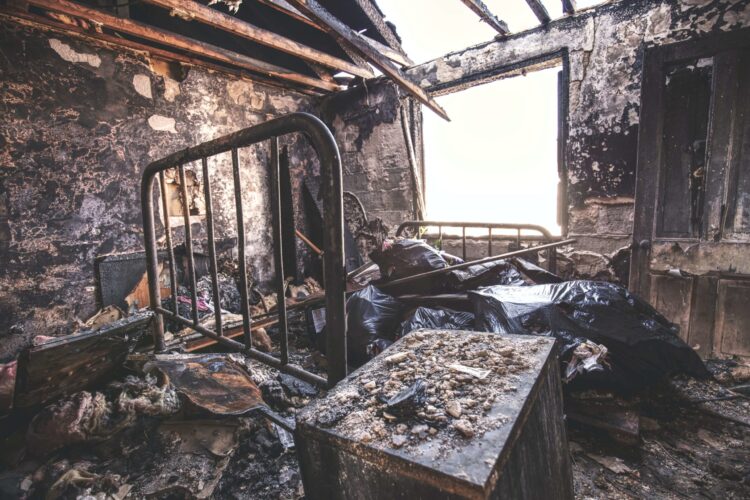What To Know About Georgia Arson Laws

There are plenty of reasons a fire can start, but when it is intentionally done, a person can face arson charges. Arson laws vary from state to state, but in many states like Georgia, arson is treated as a serious crime.
Georgia addresses arson in three different statutes in the Georgia Code Title 16: arson in the first, second, and third degree. First degree arson comes with the harshest penalties, and third having the lightest. Any degree of arson will result in at least one year of imprisonment. Main elements of arson are when it is done by a person knowingly damaging or encouraging another to damage property, and if it was done by means of explosions or fire. Without these two factors, a person cannot be guilty of arson.
First Degree Arson
Georgia law states that a person will be guilty of arson to the first degree when a person knowingly damages or causes damage to:
- Any dwelling or home of another person without their consent, whether occupied, unoccupied, or vacant
- Any building, vehicle, railroad car, watercraft, or other structure of another without their consent, if such structure is designed to use as a dwelling, whether occupied, unoccupied, or vacant
- Any dwelling or house, building, vehicle, railroad car, watercraft, aircraft, or structure whether occupied, unoccupied, vacant, or when such property is insured against loss or damage by fire or explosive, and such loss or damage happens without the consent of both the insurer and insured
- Any dwelling, house, building, vehicle, watercraft, aircraft, or other structure, whether occupied, unoccupied, or vacant with the intent to defeat, prejudice, or defraud the rights of a spouse or co-owner
- Any building, vehicle, railroad car, watercraft, aircraft, or other structure under circumstances that is reasonably foreseeable that human life may be endangered
To be proven guilty of arson in the first degree in Georgia, the State will need to demonstrate that the accused person is guilty beyond reasonable doubt. The fire must be proven it was caused out of incendiary origin, and that the person accused was the one who caused the fire.
Penalty for arson of the first degree will be punished with a fine of no more than $50,000 or by a prison term between one to twenty years, or both. It will be considered a felony conviction, which carries into future consequences. A felony conviction may make it difficult for future employment, obtaining credit, buying a home, and results in losing voting rights.
Second Degree Arson
Georgia Code Title 16 Section 16-7-61 outlines arson in the second degree similarly to first degree, by means of fire or explosives, knowingly damaging or advising/encouraging another to damage property not stated in Section 16-7-60, and belongs to someone else.
Second degree arson will serve a prison term no less than one year or more than 10 years, or recieve a fine of $25,000 or less, or both.
Third Degree Arson
Third degree arson (Section 16-7-62) is charged by means of fire or explosives, knowingly damaging or advising another to damage personal property valued $25.00 or more if it belongs to another or someone else with security interest in the property, if the property is insured against loss or damages by fire or explosives, or if it is done with the intent to defeat, prejudice, or defraud the rights of a co-owner or spouse.
The penalties for third degree arson in Georgia is a prison term of no less than one year, no more than 5 years, and/or a fine not exceeding $10,000.
Defenses Against Arson in Georgia
Consent is typically a defense against arson, however is not a proper defense when the charges stem from the commission of a felony, foreseeably endangering human life, or intending to defeat or prejudice the rights of a spouse or co-owner.
If the act of burning was accidental, evidence needs to be proved that the damage done was without the knowledge of damaging or intending damage.
If the damage was not done by fire or explosives, and there is proof that the property was not damaged in one of these ways, a person cannot be guilty of arson. Though, you may be convicted for another crime.
Criminal Law Defense with Andrew L. Schwartz
Convictions of arson in any degree come with consequences. At Andrew L. Schwartz Law we are dedicated problem solvers to defend clients with experienced and proven legal defense strategies. We specialize in all types of criminal cases, and take time to explain options and ensure a full understanding by keeping you involved with our strategies used regarding your case.
Andrew L. Schwartz is a highly experienced former prosecutor and will tenaciously defend you using his experience to provide the best solutions for your legal case. You don’t have to carry the burden alone when facing criminal charges, we are here to help with your future. Contact us today for a free, no-obligation consultation.
